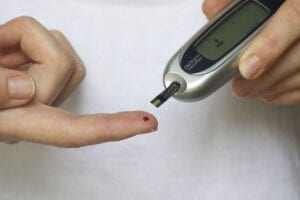Editor’s Note: Chronic conditions and rare diseases don’t discriminate, Patient Worthy and its partners are interested in amplifying the voices of those from all identities and backgrounds. If you have a journey to share, click here to learn more about how your voice can help spread awareness and inspire individuals from all walks of life.
The FLORetina-ICOOR meeting took place in Rome from November 30-December 3, 2023. During the conference, researchers, physicians, and other medical professionals came together to explore issues in the retinal world, from diseases and research to treatment development and protocols. Dr. Aleksandra Rachitskaya, MD presented during the conference. Her real-world analysis explored the impact of Ozempic (semaglutide) use on diabetic retinopathy development.
You may have heard of Ozempic or semaglutide in the news as a weight-loss drug. But the drug’s initial and main purpose is to improve glycemic control in people with type 2 diabetes (T2D). Ozempic belongs to a class of drugs called glucagon-like peptide 1 receptor (GLP-1) agonists. The Food & Drug Administration (FDA) explains that GLP-1 agonists:
[mimic] the GLP-1 hormone that is released in the gastrointestinal tract in response to eating. One role of GLP-1 is to prompt the body to produce more insulin, which reduces blood glucose (sugar) [and] in high amounts also interacts with the parts of the brain that reduce appetite and signal a feeling of fullness.
According to Michela Cimberle in Healio’s Ocular Surgery News, different studies have suggested that Ozempic could increase the risk of, or worsen the symptoms of, diabetic retinopathy. For example, the SUSTAIN 6 clinical study found that those treated with Ozempic had more diabetic retinopathy-associated complications. However, some studies have found no relation.
Dr. Rachitskaya sought to better understand what risks might exist. The real-world analysis incorporated data from 981 people. Of these, 692 people received Ozempic treatment. The remaining people, within the control group, received sodium-glucose cotransporter 2 inhibitors (SGLT 2I).
Ultimately, the data suggested that there was no significant difference in outcomes between the two groups. Ozempic did not increase the risk of developing diabetic retinopathy, nor did it worsen disease progression. It is important to note that the 981 individuals within the real-world analysis seemed to be “healthier” than those in the SUSTAIN 6 study. For example, people within the real-world analysis had better hemoglobin A1C levels than those in the SUSTAIN trial, and higher hemoglobin A1C correlates with worse outcomes.
Diabetic Retinopathy: A Rare Diabetes Complication
Anybody who has type 1 or type 2 diabetes can develop diabetic retinopathy. High blood sugar levels caused by diabetes can damage the retina, a delicate layer of light receptor cells found in the eye. Blocked blood vessels can leak, causing progressive vision loss. Your body might attempt to grow new blood vessels to replace the blocked ones, however, these new vessels may also leak and bleed. If you’ve had diabetes for a long time, or are pregnant, your risk of diabetic retinopathy increases. You can reduce the risk of diabetic retinopathy by managing your diabetes well. This includes following care plans from your physicians, eating healthy, exercising regularly, and maintaining a healthy blood sugar level.
In early stages, you may not experience any symptoms. If you do experience symptoms, they may be fleeting: coming and going rather than constantly interrupting your vision. It may become harder to see faraway objects or even to read. In later stages, you might experience floaters (spots or strings) in your vision, blurred vision, dark or empty areas in your vision, vision loss, or blindness. This condition can also cause complications like detached retinas, diabetic macular edema, and neovascular glaucoma.
If you have diabetic retinopathy, treatment is available in the form of anti-VEGF drugs, corticosteroids, laser treatment, and eye surgery. Please speak with your care provider to determine which treatment is best for your needs.
Editor’s Note: Chronic conditions and rare diseases don’t discriminate, Patient Worthy and its partners are interested in amplifying the voices of those from all identities and backgrounds. If you have a journey to share, click here to learn more about how your voice can help spread awareness and inspire individuals from all walks of life.






